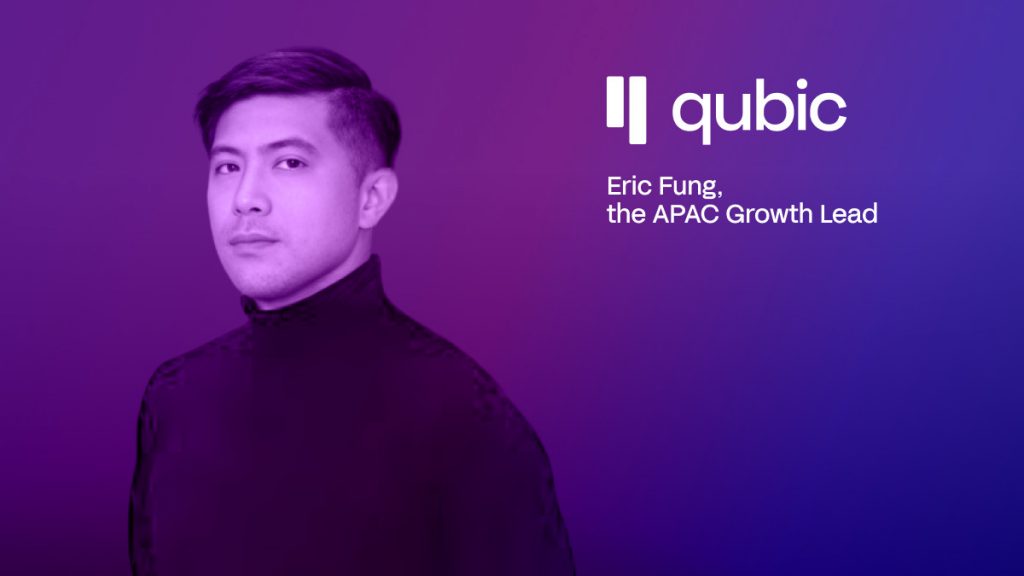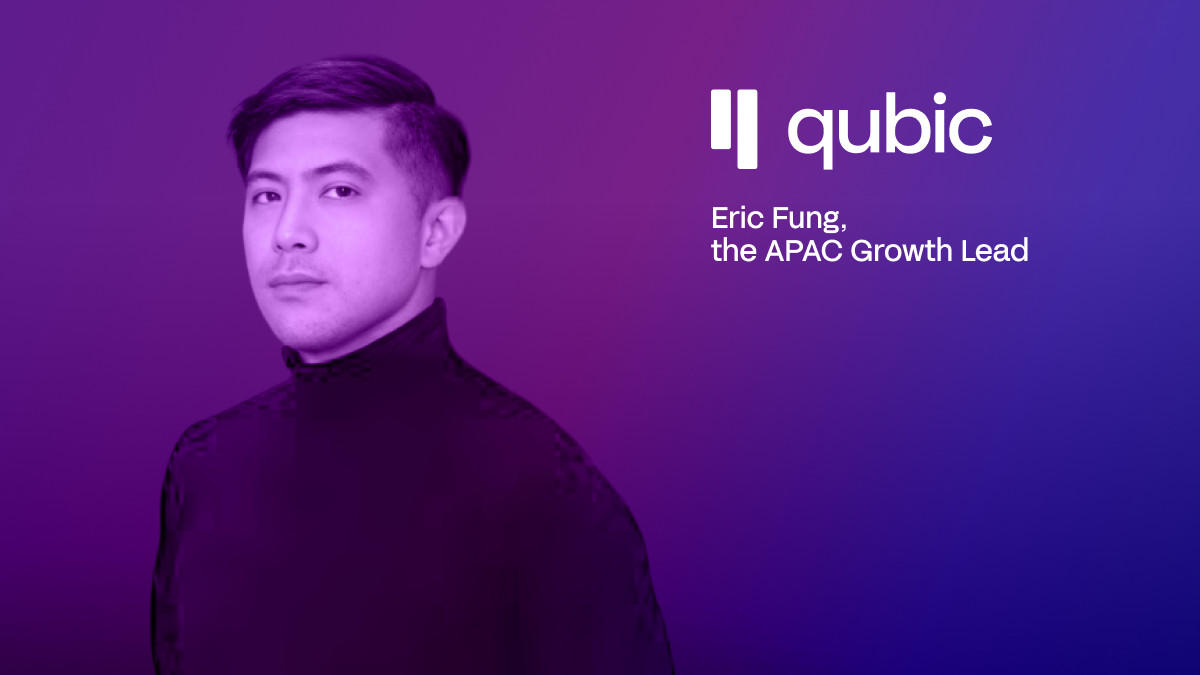Inside Qubic’s Vision: Eric Fung Unifies AI, Oracles, and Smart Contracts to Open a New Era of Blockchain

Victoria Desté
Posted: September 3, 2024 at 2:10 PM Updated: September 3, 2024 at 2:10 PM

Edit and fact check: September 3, 2024, 2:10 p.m.
Briefly
Eric Fung discusses innovative strategies and technologies in the blockchain ecosystem, including AI, oracles, and smart contracts, to strengthen industry and decentralized finance.

In this interview, Eric Fung, APAC Growth Lead at Qubic, shares the innovative strategy and groundbreaking technologies that underpin Qubic’s blockchain ecosystem. From its unique quorum-based protocol to the integration of AI, oracles, and smart contracts, Fung delves into how Qubic is empowering diverse industries, powering decentralized finance, and shaping the future of AI accessibility globally.
How does Qubic’s Quorum Protocol differ from existing consensus mechanisms in blockchains?
Qubic is a quorum-based computing blockchain designed for a variety of tasks. Any change that needs to be made to the network requires a quorum. That is, 66% of the total mining power and a large computer pool are required to agree on changes related to smart contracts, network infrastructure, or economic adjustments.
What are the potential implications of combining smart contracts and oracles in the Qubic ecosystem?
With this combination, our AI can access real-world data more effectively. We are looking for more data providers to provide this information. This will allow the AI to better understand what is happening in the world and act autonomously. Therefore, integrating oracles and smart contracts will facilitate automation. Our AI, AGI (Artificial General Intelligence), can solve problems on its own in this setting.
Given Qubic’s unique characteristics, which industries or sectors would benefit most from adopting this technology, and why?
Qubic can benefit many areas, including medicine, transportation, and indoor scientific research. However, we are focusing particularly on the medical field, because breakthroughs in this field could greatly benefit humanity and ultimately AGI systems. This field offers opportunities for impactful developments that are consistent with Qubic’s goals.
How can Qubic’s combination of oracles, smart contracts, and AI impact the development of decentralized financial applications?
The impact is significant. With smart contract automation and AI, the system can respond to a variety of market indicators. This adaptability is important for both technological advancements and financial changes across the market. Current trading bots do not take into account evolving market scenarios or the emotional elements of trading, but AGI aims to integrate these elements to provide a more dynamic and human approach to finance, peer-to-peer trading, and trading.
What are the potential security implications of Qubic’s Quorum Protocol? How does it address common blockchain vulnerabilities?
We are still developing this aspect, but overall, the data will belong to the user. Qubic only handles the computational process, and the actual data storage remains with the user. This approach addresses security and privacy issues. This is a work in progress, and more details will be available in a forthcoming whitepaper.
Can you explain how Qubic’s anti-military permit works? What are the potential advantages or disadvantages of this approach?
Our goal is to make AI accessible to everyone. In many countries, AI platforms like ChatGPT or Google Gemini are not directly accessible unless you use a VPN. Our open source license ensures that anyone can use AI regardless of their location or background, as long as it does not harm humans. That means it cannot be used by soldiers or connected to military equipment. The goal is inclusion and ethical use.
Could you explain the role of Qubic’s Oracle machine? How can it be used to enhance the functionality of smart contracts?
Good question. Smart contracts work like automated tools that execute predefined conditions, while oracles provide the real-world data that these contracts need to function effectively. Oracles feed external information into the blockchain to trigger various functions within the smart contract. By incorporating AGI, these systems can make smarter, more informed decisions and guide users more effectively.
How does the Quorum Protocol’s requirement of a supermajority of computers to reach consensus on transactions and smart contracts affect the network?
The Quorum protocol requires 66% of the computing power, or 451 of the 676 computers or validator nodes, to agree on a major change. This setup ensures a high level of security, as a significant number of people must approve the change. Unlike Bitcoin’s 51% proof-of-work system, which relies on miners, our model requires an overwhelming majority of independent computers. This approach enhances security by making it more difficult for a single entity to gain control.
Can you explain how Qubic’s smart contract IPO system encourages developers to build useful applications on the platform?
The IPO system for smart contracts allows anyone with Qubic tokens to invest in new contracts. They can bid on smart contracts and receive a share of the profits generated. For example, if a smart contract charges a 1% fee per transaction, investors with a stake in the contract receive a portion of that profit. This system decentralizes smart contract ownership and fosters the Web3 ecosystem.
Could you explain to me what Aigagas is and what its purpose is?
Aigarth is our AI system. The name comes from “AI” and “Garth”, meaning garden. It is a metaphorical garden where different types of AI (good, bad, useful, useless) evolve together. Our founders envision Aigarth as a set of AI tools that can become conscious over time. This diverse “garden” approach allows for a wide range of AI applications and experiments.
Can you tell us about Kubik’s plans?
Our vision is to make AI accessible to everyone. We have a comprehensive roadmap that includes expanding to more exchanges, integrating more oracles and smart contracts, and building a larger team. We are hiring and inviting more developers. We also have a robust grant program to support innovative community ideas such as introducing staking and creating new apps. We are expanding globally, especially in Asia and North America, and we want to continue to expand our presence globally.
disclaimer
In accordance with the Trust Project guidelines, the information provided on this page is not intended as legal, tax, investment, financial or any other form of advice and should not be construed as such. It is important that you only invest what you can afford to lose and seek independent financial advice if in doubt. For further information, we recommend that you refer to the terms and conditions and help and support pages provided by the publisher or advertiser. MetaversePost strives to provide accurate and unbiased reporting, but market conditions may change without prior notice.
About the Author
Victoria is a writer on a variety of technology topics including Web3.0, AI, and cryptocurrencies. Her extensive experience allows her to write insightful articles for a wider audience.
More Articles

Victoria Desté

Victoria is a writer on a variety of technology topics including Web3.0, AI, and cryptocurrencies. Her extensive experience allows her to write insightful articles for a wider audience.


